
Entertainment
-
 DiscoverEU marks 40 years of Schengen with 40,000 free travel passes for young Europeans
The European Commission is celebrating the 40th anniversary of the Schengen Area by offering 40,000 young Europeans the chance to explore the continent through DiscoverEU, part of the31 October 2025Read More...
DiscoverEU marks 40 years of Schengen with 40,000 free travel passes for young Europeans
The European Commission is celebrating the 40th anniversary of the Schengen Area by offering 40,000 young Europeans the chance to explore the continent through DiscoverEU, part of the31 October 2025Read More... -
 Brussels universities to award honorary doctorates to Stromae, Lize Spit, and Amélie Nothomb
The Vrije Universiteit Brussel (VUB) announced on Monday that Stromae, Lize Spit, Amélie Nothomb, François Schuiten, and Ever Meulen will receive joint honorary doctorates from VUB and27 October 2025Read More...
Brussels universities to award honorary doctorates to Stromae, Lize Spit, and Amélie Nothomb
The Vrije Universiteit Brussel (VUB) announced on Monday that Stromae, Lize Spit, Amélie Nothomb, François Schuiten, and Ever Meulen will receive joint honorary doctorates from VUB and27 October 2025Read More... -
 Stolen Renaissance masterpiece returns to Italy after 52 years
After more than half a century, a stolen Renaissance painting has finally returned home to Italy. *Madonna with Child*, a tempera-on-wood masterpiece by Venetian painter Antonio Solario,31 July 2025Read More...
Stolen Renaissance masterpiece returns to Italy after 52 years
After more than half a century, a stolen Renaissance painting has finally returned home to Italy. *Madonna with Child*, a tempera-on-wood masterpiece by Venetian painter Antonio Solario,31 July 2025Read More... -
 Belgian seaside resorts: highlights of royal De Panne
While Ostend is often dubbed the queen of Belgium’s seaside resorts, the country’s coastline offers many other gems worth discovering. In this series, Belga English explores four distinctive20 July 2025Read More...
Belgian seaside resorts: highlights of royal De Panne
While Ostend is often dubbed the queen of Belgium’s seaside resorts, the country’s coastline offers many other gems worth discovering. In this series, Belga English explores four distinctive20 July 2025Read More... -
 Louis Vuitton named suspect in Dutch money laundering probe
Luxury fashion house Louis Vuitton has been named a suspect in a Dutch money laundering investigation, according to the Dutch Public Prosecution Service (OM). The OM alleges that18 July 2025Read More...
Louis Vuitton named suspect in Dutch money laundering probe
Luxury fashion house Louis Vuitton has been named a suspect in a Dutch money laundering investigation, according to the Dutch Public Prosecution Service (OM). The OM alleges that18 July 2025Read More... -
 Brussels tops global rankings for international meetings as tourism soars to new heights
Brussels has once again secured its position as the world’s top city for international meetings, according to the latest annual report from the Union of International Associations (UIA).26 June 2025Read More...
Brussels tops global rankings for international meetings as tourism soars to new heights
Brussels has once again secured its position as the world’s top city for international meetings, according to the latest annual report from the Union of International Associations (UIA).26 June 2025Read More... -
 Coffee prices keep climbing in Czech establishments
The cost of a cup of coffee in Czech restaurants and cafés has increased by 4% over the past year, now averaging CZK 57.80, according to data from the Dotykačka point-of-sale system.15 June 2025Read More...
Coffee prices keep climbing in Czech establishments
The cost of a cup of coffee in Czech restaurants and cafés has increased by 4% over the past year, now averaging CZK 57.80, according to data from the Dotykačka point-of-sale system.15 June 2025Read More...
Politics
-
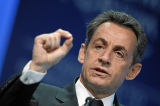 France’s former President Sarkozy to begin appeal trial over Libyan Funding allegations
Former French President Nicolas Sarkozy is set to appear in a Paris court on March 16 for the start of his appeal trial over allegations of illegal campaignRead More...
France’s former President Sarkozy to begin appeal trial over Libyan Funding allegations
Former French President Nicolas Sarkozy is set to appear in a Paris court on March 16 for the start of his appeal trial over allegations of illegal campaignRead More... -
 French parliament poised to halt Macron’s pension reform amid budget Turmoil
French lawmakers are expected to vote Wednesday to suspend President Emmanuel Macron’s controversial pension reform, as the government battles to push next year’s budget through aRead More...
French parliament poised to halt Macron’s pension reform amid budget Turmoil
French lawmakers are expected to vote Wednesday to suspend President Emmanuel Macron’s controversial pension reform, as the government battles to push next year’s budget through aRead More... -
 Ex-minister Ziobro rejects corruption allegations, labels case political
Former Polish justice minister Zbigniew Ziobro vowed on Saturday to pursue “legal and political” action after parliament voted to lift his immunity, clearing the way for prosecutors to bringRead More...
Ex-minister Ziobro rejects corruption allegations, labels case political
Former Polish justice minister Zbigniew Ziobro vowed on Saturday to pursue “legal and political” action after parliament voted to lift his immunity, clearing the way for prosecutors to bringRead More... -
 Pro-Russian hackers briefly disrupt Belgian Telecom websites in DDoS attack
A wave of DDoS attacks briefly disrupted the websites of Belgian telecom operators Proximus and Scarlet on Wednesday morning, with the pro-Russian hacker group NoName057 claimingRead More...
Pro-Russian hackers briefly disrupt Belgian Telecom websites in DDoS attack
A wave of DDoS attacks briefly disrupted the websites of Belgian telecom operators Proximus and Scarlet on Wednesday morning, with the pro-Russian hacker group NoName057 claimingRead More... -
 French Parliament weighs wealth tax as budget gap looms
France’s government on Friday defended its proposed alternative to a sweeping tax on the ultra-rich, as lawmakers clashed over how to tap the country’s highest fortunes to help close aRead More...
French Parliament weighs wealth tax as budget gap looms
France’s government on Friday defended its proposed alternative to a sweeping tax on the ultra-rich, as lawmakers clashed over how to tap the country’s highest fortunes to help close aRead More...
News
-
 Swiss army has “gone back to sleep,” says departing chief
Switzerland briefly awakened to the urgency of national defence following Russia’s 2022 invasion of Ukraine — but has since drifted back into complacency, outgoingRead More...
Swiss army has “gone back to sleep,” says departing chief
Switzerland briefly awakened to the urgency of national defence following Russia’s 2022 invasion of Ukraine — but has since drifted back into complacency, outgoingRead More... -
 Poland and Germany to seal new defence pact in 2026, leaders announce
Polish Prime Minister Donald Tusk and German Chancellor Friedrich Merz said on Monday that their governments plan to sign a new bilateral defence agreement nextRead More...
Poland and Germany to seal new defence pact in 2026, leaders announce
Polish Prime Minister Donald Tusk and German Chancellor Friedrich Merz said on Monday that their governments plan to sign a new bilateral defence agreement nextRead More... -
 Monegasque Language Committee resumes its work
Following the publication of Sovereign Ordinance No. 11,219 on 7 May 2025, which appointed the members of the Monegasque Language Committee, the group has officially reconvened atRead More...
Monegasque Language Committee resumes its work
Following the publication of Sovereign Ordinance No. 11,219 on 7 May 2025, which appointed the members of the Monegasque Language Committee, the group has officially reconvened atRead More... -
 France arrests four, including two Russian nationals, on espionage suspicions
French authorities have arrested four people — including two Russian nationals — as part of an investigation into suspected espionage conducted on behalf of a foreign state, the ParisRead More...
France arrests four, including two Russian nationals, on espionage suspicions
French authorities have arrested four people — including two Russian nationals — as part of an investigation into suspected espionage conducted on behalf of a foreign state, the ParisRead More... -
 German home prices expected to climb over 3% annually, pressuring affordability for new buyers
German residential property prices are poised to grow by more than 3% a year in the coming years, according to a Reuters poll of property analysts, raising fresh concerns about housingRead More...
German home prices expected to climb over 3% annually, pressuring affordability for new buyers
German residential property prices are poised to grow by more than 3% a year in the coming years, according to a Reuters poll of property analysts, raising fresh concerns about housingRead More... -
 UN convention to review environmental complaint over France’s 2030 Winter Olympics
A United Nations environmental body has agreed to examine a complaint accusing France of violating international transparency and public-participation rules during preparations for the 2030Read More...
UN convention to review environmental complaint over France’s 2030 Winter Olympics
A United Nations environmental body has agreed to examine a complaint accusing France of violating international transparency and public-participation rules during preparations for the 2030Read More... -
 Louvre closes major gallery over structural concerns amid ongoing security scrutiny
The Louvre Museum in Paris has closed one of its key galleries after engineers identified structural weaknesses in parts of the historic building, adding fresh unease to an institution alreadyRead More...
Louvre closes major gallery over structural concerns amid ongoing security scrutiny
The Louvre Museum in Paris has closed one of its key galleries after engineers identified structural weaknesses in parts of the historic building, adding fresh unease to an institution alreadyRead More... -
 EU reaches provisional €192.8 billion budget deal for 2026, boosting research, security and competitiveness
EU lawmakers struck a provisional agreement early Saturday on the bloc’s 2026 budget, securing hundreds of millions in additional funding for research,Read More...
EU reaches provisional €192.8 billion budget deal for 2026, boosting research, security and competitiveness
EU lawmakers struck a provisional agreement early Saturday on the bloc’s 2026 budget, securing hundreds of millions in additional funding for research,Read More... -
 Germany to invest €26.5 billion in soldier equipment and armoured vehicles
Germany is set to channel €26.5 billion into modernising troop gear and expanding its fleet of wheeled armoured vehicles over the next decade, according to a finance ministry document seenRead More...
Germany to invest €26.5 billion in soldier equipment and armoured vehicles
Germany is set to channel €26.5 billion into modernising troop gear and expanding its fleet of wheeled armoured vehicles over the next decade, according to a finance ministry document seenRead More...

Most Read
- Teen held after US woman killed in London stabbings
- Football: Farhad Moshiri adamant Everton deal above board
- Greece hails new post-bailout chapter but concerns remain
- The Kokorev case caused wide discussion in Brussels
- EU accession talks stir debate in Moldova: insights from Gagauzia's leader, Yevgenia Gutsul
Economics
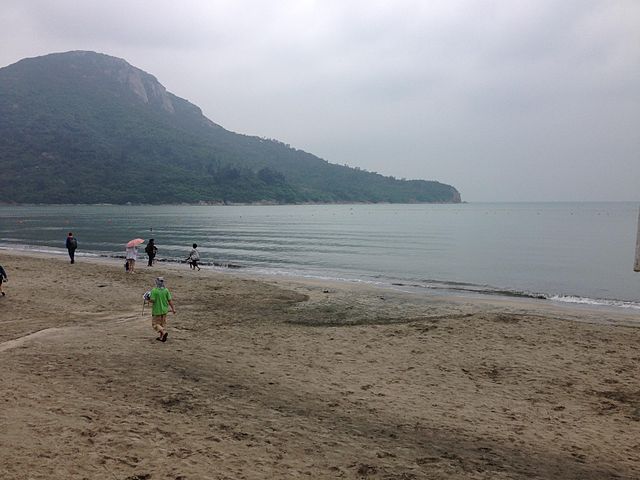
A clean-up operation was under way in Hong Kong Monday after a massive palm oil spillage from a ship collision in mainland Chinese waters clogged some of its most popular beaches.
The coast was coated with rancid-smelling sticky white clumps of the oil as it washed in Sunday, with 11 beaches still closed to swimmers Monday in the height of a summer heatwave.
There are still lumps of the solidified oil on the beaches and the sea water in some areas is greasy.
Hong Kong comprises more than 200 islands with glittering bays, but there are increasing concerns about pollution and rubbish blighting its shores.
On Pui O beach, on the island of Lantau, cleaners raked through the famous black sand Monday morning retrieving lumps of palm oil mixed with other trash, from plastic water bottles to children's toys.
Although there is still a red flag up and the beach is officially closed, some people still ventured into the water.
One 61-year-old surfer, who gave his name as Simon and is a regular at the beach, said there was still oil in the water.
"It got under my feet and on my board. It's all slippery," he told AFP.
"Yesterday there was big chunks along the beach and in the water."
He added that there was often rubbish on the beach, often left by visitors.
"I live here now, I have to put up with it. I don't like it," said Simon, who is an airport worker originally from Hawaii.
Beach announcements told determined swimmers at the closed beaches to get out of the water Monday.
But Agnes Mercado, 49, a regular at secluded South Bay on Hong Kong Island, was determined to take her morning dip, although she said she would not submerge her upper bod
"Of course I'm worried about it, but it's even worse than this on some days," she said of the pollution.
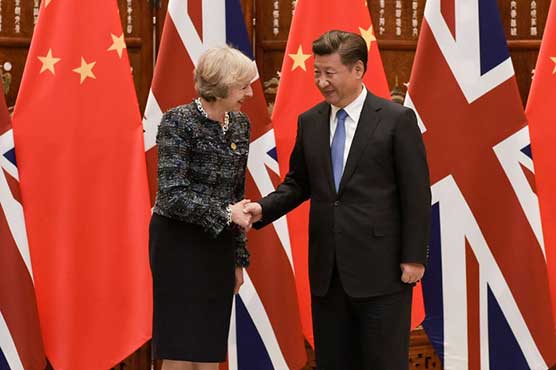
Southeast Asian nations feuded Sunday over how to respond to Chinese expansionism in the South China Sea, with Vietnam insisting on a tough stance but Cambodia lobbying hard for Beijing, diplomats said.
The debates among foreign ministers of the 10-member Association of Southeast Asian Nations (ASEAN) at a security forum in the Philippines were the latest in years of struggles to deal with competing claims to the strategically vital sea.
The ministers failed to release a customary joint statement after meeting on Saturday because of their differences on the sea issue, and follow-up negotiations on Sunday did not end the stand-off, two diplomats involved in the talks told AFP.
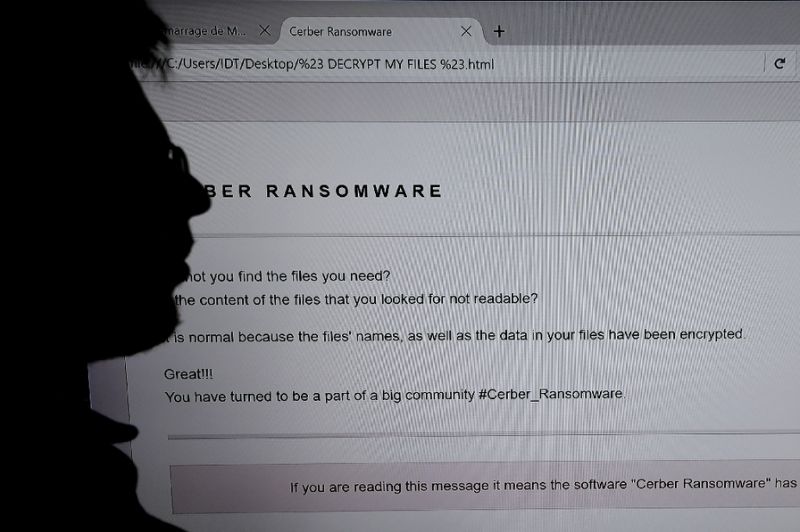
Ransomware demands which hit a clutch of multinationals Tuesday are the latest in a wave of international cyberattacks in recent months.
In Europe, Danish sea transport company Maersk, British advertising giant WPP and French industrial group Saint-Gobain all came under attack as did US pharmaceutical group Merck.
The attacking tool is believed to be ransomware of the so-called Petya malware type, which earlier affected firms in Russia including oil giant Rosneft and Ukraine.
The latest wave comes just six weeks after what the EU's law enforcement agency described as an "unprecedented" attack by WannaCry ransomware which hit more than 100 countries -- notably Britain's National Health Service.
The repeated waves of attacks have raised questions on how companies can protect themselves effectively.
- What is ransomware? -
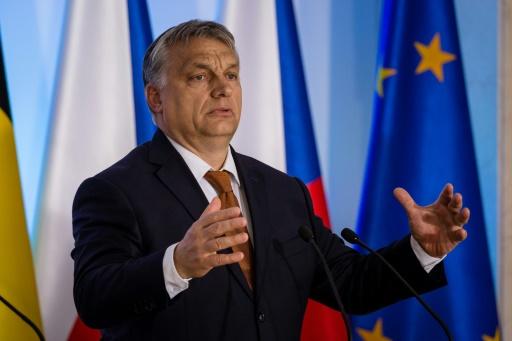
Hungary's populist prime minister said Monday he sees no chance for a single EU-wide migration policy, just days after the bloc launched legal action against Budapest for refusing refugees under a controversial solidarity plan.
"To say that there will be one integrated, single European migration policy, I do have my doubts and I do not see any chance for this," Viktor Orban told the Benelux and Visegrad group premiers meeting in Warsaw ahead of an EU summit in Brussels later this week.
"Hungary is open to any negotiations to this end but we would like to continue to remain realists," the Hungarian PM added.
The EU launched legal action last week against Hungary, Poland and the Czech Republic for refusing to participate in relocating 160,000 refugees under a 2015 plan set up when more than one million people landed on Europe's shores, mainly in Italy and Greece.
Brussels had set a June deadline for Warsaw and Budapest to start accepting mainly Syrian, Eritrean and Iraq asylum seekers. Prague has also come under pressure after effectively dropping out of the relocation plan.
Orban argued Monday that his government's rejection of refugees and migrants was intended to preserve the central European country's identity.

Football super-agent Jorge Mendes is due to be questioned by a Spanish judge for the first time Tuesday as part of a probe into striker Radamel Falcao’s alleged tax evasion, just one of his clients to fall foul of the country’s judiciary.
As Spanish authorities tighten the net around footballers — with Real Madrid superstar Cristiano Ronaldo, another Mendes client, the latest to be accused of tax evasion to the tune of 14.7 million euros ($16.5 million) — their advisers and agents are coming under scrutiny too.
Monaco’s Falcao is suspected of failing to correctly declare 5.6 million euros of income earned from image rights between 2012 and 2013 while he was at Atletico Madrid.
The Colombian is accused of using a web of shell companies in the British Virgin Islands, Ireland, Colombia and Panama to avoid taxes on the image rights income.
Mendes is due to appear before a court at Pozuelo de Alarcon, near Madrid, as part of the investigation, but his company Gestifute has already denied any wrongdoing.

An Instagram star and well-known fitness blogger has died in a freak accident after a pressurised cannister used for dispensing whipped cream exploded, hitting her in the chest, her family has said.
Rebecca Burger, who had a large following on the social media site, where she posted regular pictures of herself promoting fitness products, was killed in eastern France in what the family said was a domestic incident.
"It is with great sadness we announce the death of Rebecca who died the June 18th, 2017 in an accident in the home," read a statement on Burger's Instagram account, signed "The grieving family".
Another post included a photograph of a dispenser, which has a small pressurised canister, alongside a warning not to use similar devices.
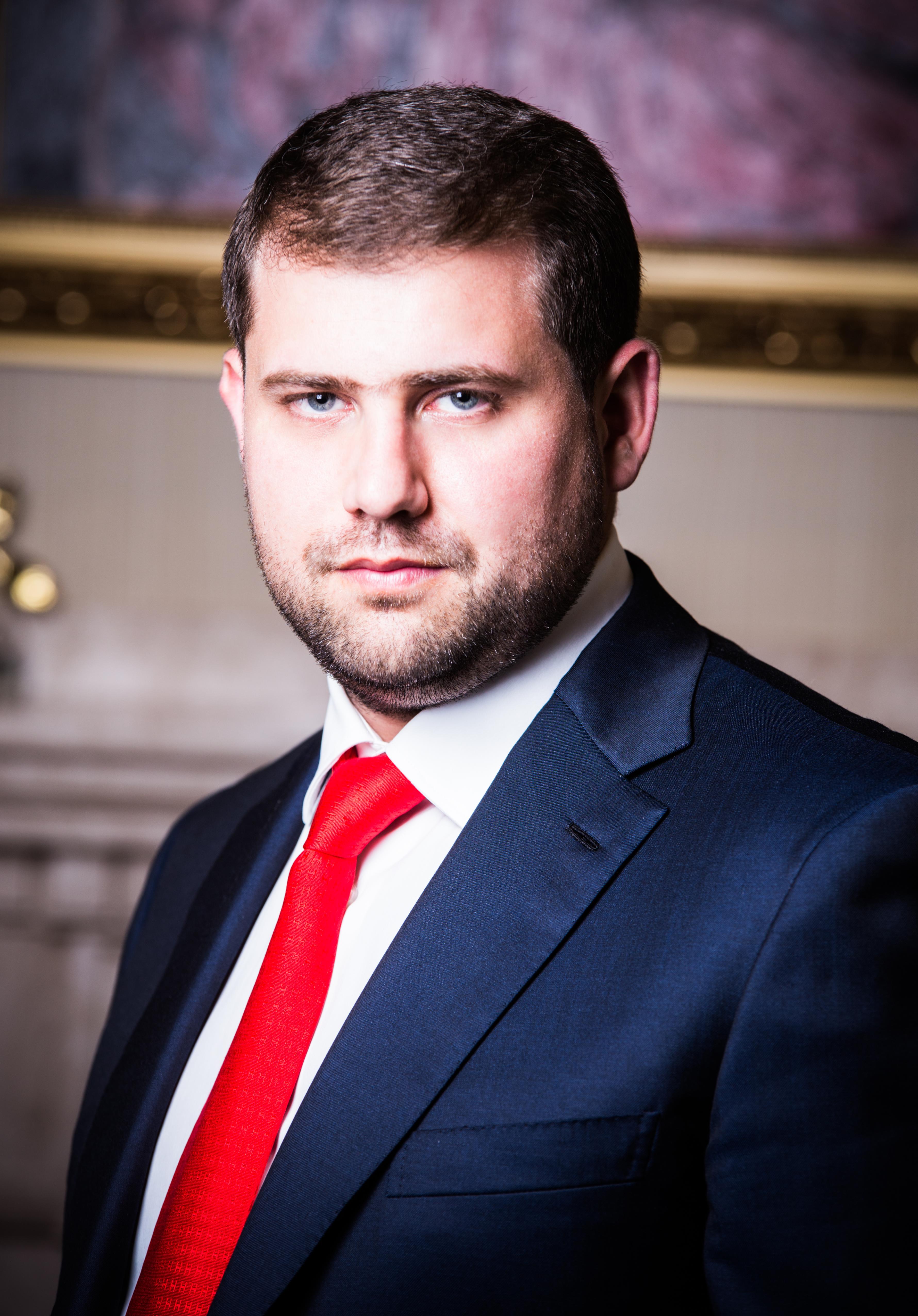
Summarising the two-day discussions of the delegation of Shor Party from Moldova to the European Parliament, moderator of the concluding press conference, which took place in Strasbourg, Alessandro Musolino (“Forza Italia”) said, “You can tell Mr Shor he is not alone. He is not alone! Moreover, observance of rights and freedoms is one of the main provisions of the Association Agreement. We, Europeans, saw in you, representatives of Moldova, sincere patriotism, and this is very important.”
Who is this Mr Ilan Shor who deserved such emotional European support? Famous in his country entrepreneur and philanthropist. Popular, supported by over 60% of voters, mayor of a large by Moldovan standards city of Orhei. Political leader who in 2016 headed the party named after him. And besides – a victim of lawlessness of Moldova’s law enforcement system. And what is more – a prisoner, forced to stay under the house arrest for a year already.
Mr Shor’s vicissitudes began when the government, in the person of ex-premier Vladimir Filat, saddled him with the bled-dry state-owned bank. Having made use of the dependent position of any businessman to a representative of supreme power in Moldova, Filat compelled Shor to issue unsecured loans to the companies he controlled as well as to businessmen close to him, e.g. notorious Veaceslav Platon. That was the finish of the bank, which was soon taken from private investors led by Shor and then – liquidated.
Shor, for whom the corrupt representatives of Moldovan authorities prepared the role of a “guilty”, destined to be held accountable for many years of theft from the state-owned bank, went to law enforcers and turned himself in. Filat and Platon were convicted and sentenced to long prison terms. And Ilan Shor, as the main witness who must be under state protection, instead of running the city, heading the political party, bringing up his small children... was placed under house arrest. Numerous attempts of lawyers to challenge this “strange” judicial award was to no avail. Lawyers’ arguments are convincing: Shor cooperates with the investigation, complies with all court orders, does not undertake attempts to interfere with witnesses, does not leave the country. Moreover, pursuant to Moldova’s law, voluntary surrender frees from criminal liability. Lawyers’ arguments are convincing for everyone, except for the Moldovan justice, which again and again denies Ilan Shor’s right to enjoy the deserved freedom.

More than 1,500 people were injured, three seriously, after a bomb scare triggered a stampede among Juventus fans watching the Champions League final in Turin, local authorities said Sunday.
In an update on Saturday's dramatic events in a square packed with supporters watching the Cardiff match on a giant screen, the local prefecture said 1,527 had been treated for mainly minor injuries.
Three people were in a serious but not life-threatening condition, including a young boy. Local media described him as a seven-year-old and said he was in a coma with serious chest injuries after being trampled in the crush.
AFP reporters who witnessed the scenes said the panic seemed to have been triggered by fireworks, followed by one or more people shouting that a bomb had exploded -- a notion that quickly filtered through the crowd.

Russia have been warned they will be barred from July's World Para Athletics Championships in London and the 2018 Winter Paralympics unless "something dramatically changes" regarding doping.
The International Paralympic Committee (IPC) issued a blanket ban on all Russian competitors at last year's Rio Summer Paralympics.
IPC president Philip Craven on Monday said Russia also faced the very real possibility of being excluded from London this year and the Winter Games in Pyeongchang as well.
Russia were suspended by the IPC in August following revelations of widespread state-sponsored doping uncovered in a report by Richard McLaren on behalf of the World Anti-Doping Agency (WADA), which also saw the country's track and field team banned from the 2016 Rio Olympics.

The David Roytman brand is one of the most recognizable brands in modern Judaica. Arguably, he was the first to bring the elements of high fashion and luxury into a traditional world of Jewish attributes, making it much more lucrative and diverse. Today we are talking with David Roytman, a native of Odessa (Ukraine) and founder of Luxury Judaica lifestyle brand.
Q.: Mr Roytman, can you tell us about yourself and some key facts in your life?
A.: I was born in Odessa and moved to Israel in 1990. In Odessa, I studied at synagogue and lived in the house of Isaiah Giser who was rabbi of the city. At the end of 1990, I went to Israel to study at yeshiva. At that time, Rabbi Yitzchak Kogan (currently, chief rabbi at Bolshaya Bronnaya synagogue in Moscow) organized the Children of Chernobyl project focused on sending Jewish children from the Chernobyl Exclusion zone to Israel. KGB denied me the opportunity to leave the country as I did not match the criteria being an Odessa citizen. Rabbi Kogan convinced them that at the time of the Chernobyl disaster I stayed with my relatives not far off Chernobyl, and perhaps the authorities did not verify details (by the way, I heard that story from Yitzchak Kogan himself at a Moscow event that I visited). I joined the group to leave for Israel alone, without my parents, and continue my studies at yeshiva, which I did for the next 8 years.
Studying at yeshiva, I dreamt of serving in the Israeli special forces, which was actually my long-nurtured dream. To make the dream come true, I had to go to a regular school and receive a general education certificate (studying at a religious institution does not provide that kind of certificate). I managed to catch up with the 12-year school curriculum in a little more than a year and then pass state examinations. As a student in the final year, I used to take numerous tests for admission to an anti-terrorism squad and succeeded. I even had to wait for some time to qualify since an eligible conscript who wants to serve in special forces must live in Israel at least 8 years. While in the military, I got the KGB agent nickname as nobody believed that a man from the USSR, having parents in that country, could fit the secret special services. The preparatory courses and drill were difficult and lasted for 18 months. I had to face many challenges and learnt a lot of things. Anyway, a pint of sweat saves a gallon of blood, as you know. After passing through so many hardships for one year and a half, a war turned out to be quite a tolerable and habitual phenomena. I planned to enter the university at the end of my service but it was not four months after the army discharge that I was recalled to yet another war known as the Operation “Defensive Shield”. Our special unit was sent to a refugee camp in Jenin where we stayed in March–April 2002. A year after those events, the Jenin, Jenin film was released that caused controversial feelings with Israelis, to put it mildly.
Coming home from the war, there was no opportunity to continue the pre-study courses at the university as I had to wait for a new school year. At that moment, I was offered to establish the Birthright program backed by the Ezra Olami youth organization, which had be aimed at Russian-speaking Jewish youth who lived in the United States. The project involved me for over 10 years. I moved to the US but used to fly to Israel several times to take part in war action and regular military exercise. I finally became founder of Esra’s North American branch. Thanks to the program, we relocated dozens of thousands of young people to Israel, organized trips to Poland, South Africa, Italy, Great Britain, France, to name but a few. Ezra became subsequently an international organization with numerous offices across the world. I began doing business over two years ago. My first area was security for obvious reasons, and the first commercial projects were related to that field. By that time, I had built a reputation of the man of my word and the one who delivered on his promises. So I was not just looking for money; instead, I had a wide selection of investors who could readily inject money into my projects. As a result, we consolidated a group of 12 companies.

















